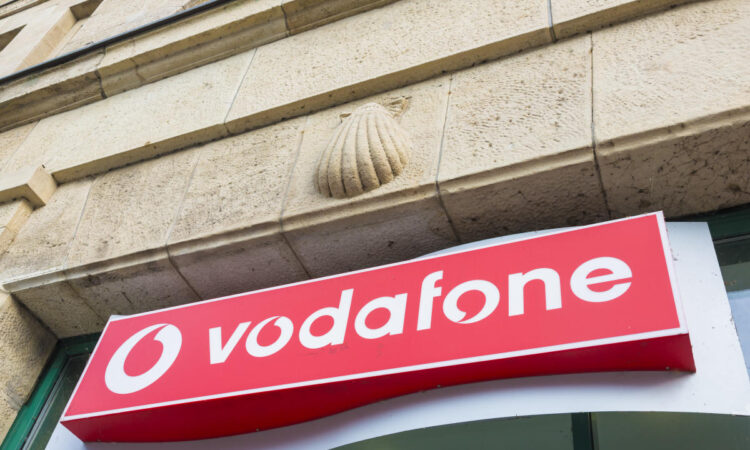
Watch: Pairpoint by Vodafone CPO David Palmer speaks to Yahoo Finance Future Focus
Vodafone will use SIM card technology to meet an anticipated surge in demand for cryptocurrency on mobile phones.
CPO of Pairpoint by Vodafone David Palmer spoke to Yahoo Finance Future Focus about how the company is advancing the use of blockchain on mobile devices to manage crypto transactions.
“Within each mobile phone is a SIM card and we have focused on linking the mobile phone SIM card to digital wallets, identity and blockchains, using the cryptography we have in those SIM cards for that blockchain integration,” Palmer told Yahoo Finance.
Palmer outlined how the company’s Pairpoint brand is advancing web3 and Internet of Things (IoT) services by utilising SIM card technology for blockchain-based digital wallets on mobile devices. “Pairpoint provides a secure digital platform that allows vehicles, devices, and machines to autonomously and seamlessly interact and trade with each other,” the Vodafone website said.
Surge in blockchain-based digital wallets
Palmer believes there will be 5.6 billion blockchain-based digital wallets by 2030, and that they will be the gateway to financial services.
Read more: Bitcoin ETFs poised for US pension plan inflows, Standard Chartered analyst says
Palmer highlighted the use of public blockchains like ethereum (ETH-USD). He noted the increasing speed and security of blockchains but acknowledged regulatory hurdles.
“Long term the pathway is towards using public blockchains such as the ethereum network, and with the ethereum fork, we are starting to see that public blockchains are becoming faster and more secure,” Palmer added.
Read more: Turning assets into tokens on blockchain is $15tn market, says analyst
But he acknowledged regulatory barriers, adding that “with mainstream financial services there are regulations that prevent them using public blockchains because of sanctions”.
Vodafone’s digital asset broker platform
One of Vodafone’s (VOD.L) key innovations in this sector is the PairPoint digital asset broker platform. Palmer detailed how ParPoint can facilitate transactions between public blockchains, such as the ethereum network, and private blockchains such as Onyx by JPMorgan, which employs smart contracts for seamless integration.
He said: “We act as a middleman for large enterprises that wish to write to a public blockchain. These large financial services can link to Vodafone’s blockchain, it is logged there and then a smart contract using things like account abstraction, allows cross chain interoperability.”
Vodafone’s digital asset broker platform followed their early experiments with peer-to-peer micro-payment transactions. Vodafone later integrated its SIM card technology with blockchain, introducing interoperable ‘digital identity passports’. These passports, anchored on the blockchain, securely store private keys to digital wallets within the SIM card’s hardware module.
Read more: Bitcoin success with SEC fuels anticipation for ether spot ETF
This culminated in the creation of Vodafone’s Pairpoint platform, providing internet of things (IoT) devices with decentralised digital identities, and enabling them to operate across organisational and system boundaries.
Palmer illustrated this concept with scenarios where devices equipped with hardware wallets could autonomously authenticate and execute transactions – for example, an electric autonomous vehicle could pay for its own charging at a charging station.
But Palmer warned of the importance of securing these wallets against cyber threats, and acknowledged that they will be prime targets for hackers.
Watch: How crypto’s faster payment systems are influencing traditional finance | Future Focus
Download the Yahoo Finance app, available for Apple and Android.






